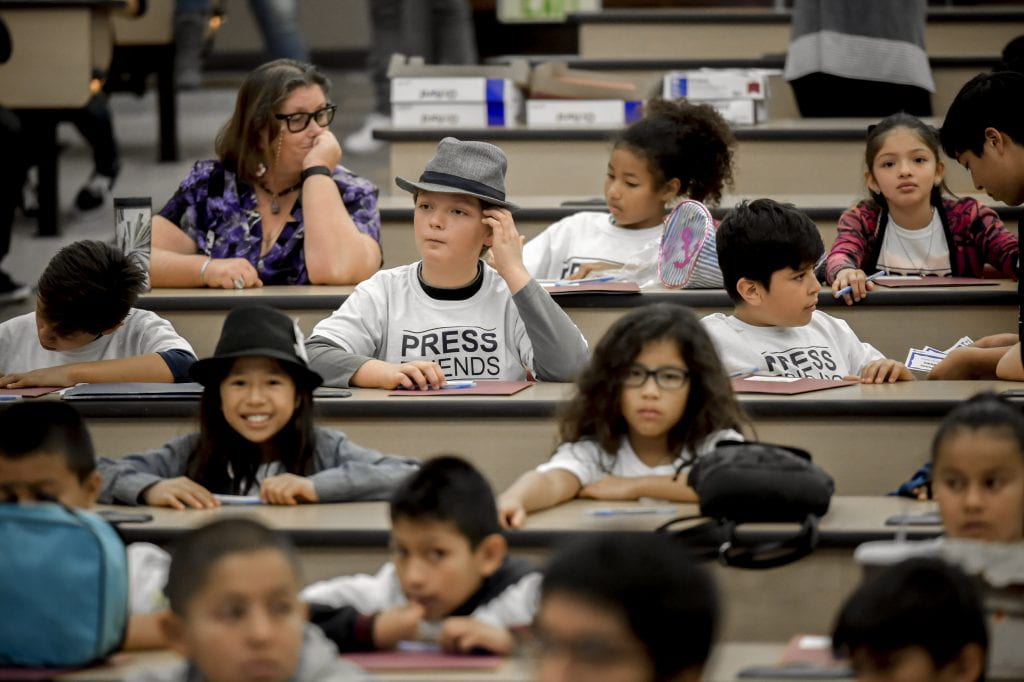“Do the Write Thing” is a phrase often associated with the idea that words have the potential to bring about a sort of social justice. For student mentors at the Global Health Symposium for Kids on Nov. 14, it served as a guiding theme.
Working with PressFriends, a nonprofit designed to help elementary school students hone their writing skills, graduate students from the Keck School of Medicine of USC’s Master of Science in Global Medicine program hosted 140 youngsters on the Health Sciences Campus.
PressFriends volunteers from local high schools and USC undergraduates mentored the third- and fourth-graders who learned how to combine the tenets of good journalism with in-depth investigations into multiple health topics here and around the world.
Graduate students focused on pollution and the environment, disability, food and water security, infection care/hand hygiene, human rights, oral health, refugees and the effects of culture on nutrition, diet and exercise. Elementary students not only received an education about global health disparities, but they also learned about the importance of good research, asking questions, making comparisons and connections, and effective communication as they completed article-writing exercises throughout the day.
“What we want is to really educate these children about these important topics because they’re going to hear about it in the news, they’re going to hear about it from their friends, they’re going to hear about it from their parents,” said Farah Zarehi, an adviser for the MS program. “We want them to be informed about what’s going on, and we also want them to get excited about this really awesome field of global medicine.”
Communication 101
According to Luke Southwell, president of PressFriends of USC, engaging students in writing news articles helps them absorb information better. “When kids communicate to their own peers about [issues], it tends to come across stronger …. When they read an article written by their friends, and it’s coming from their own peers, they tend to take it more to heart.”
Eric Parker, a parent volunteer from Foshay Learning Center, added: “I’m just amazed that these children have the opportunity to come to a university to experience what it’s like to be here and to talk about some of these different topics that aren’t necessarily always explained in school. This exposes them to a higher level of education. I learned a lot just being here myself.”
Elahe Nezami, director of the Global Health program, said: “It’s wonderful to see that all of the students are enthusiastic, happy and excited and very well engaged. We want them to learn about [healthy habits] that they can practice in their local community. It’s [important for students] to think about the world, but also how you are going to practice those things in your local communities and at a larger level where we can practice being better people in the world.”
By Melisa Acoba
Program is supported by the Good Neighbors Campaign.
Related news
